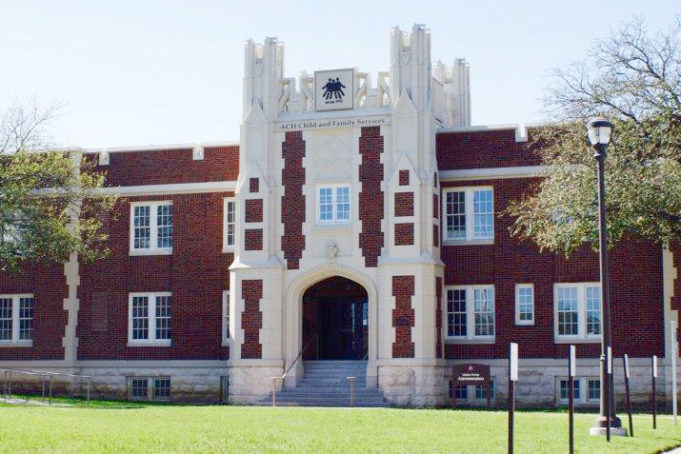Even before the realities of the COVID-19 crisis set in, March was set to be a challenging and formative month for Chuck Burton and his colleagues at ACH Child and Family Services. The nonprofit, through its community services division Our Community Our Kids, made Texas history on March 2 as OCOK began providing foster care case management and family reunification services for youths in Tarrant County. Up until that date, that role had been exclusively performed by Child Protective Services (CPS).
“We have been preparing for Stage 2 for several years,” Burton said, referring to the classification of the transition according to the Texas Department of Family and Protective Services.
CPS personnel still handle investigations of alleged child abuse and neglect. If a Tarrant County Family Courts judge rules that a child needs to be temporarily placed in foster care, OCOK assigns permanency and child care specialists, who learn about the case and provide resources to both the child and parents with the aim of eventually reuniting both parties.
Reunification through family courts is the top priority for the roughly 150 permanency specialists OCOK currently employs. If the parents state or demonstrate no desire to be reunified, or if drug addiction or other complications make reunification impossible, OCOK and its parent group (ACH) have the resources to quickly find the child a suitable foster family while adoption options are explored, Burton said.
COVID-19 has complicated but not slowed ACH’s foster care efforts. Even after foster care training courses switched to online classes, interest hasn’t waned, Burton said. Permanency specialists communicate with children and parents remotely when possible, but the nature of the job requires that specialists visit homes (while donning face masks) when needed.
OCOK is currently in the process of hiring more permanency specialists so each case manager has 14 youths to work with. CPS caseworkers, Burton said, are often tasked with twice that number. Helping children who are known victims of abuse and neglect is only part of ACH’s mission.
The 105-year-old nonprofit runs numerous programs that work to prevent the types of family disruptions and conflicts that lead to child abuse and neglect. One such program, the Family Emergency Fund, was created last March in direct response to COVID-19. The pot of money is reserved for families who are at risk for domestic or child abuse due to financial stressors.
“If we have someone call in and say, ‘I’ve lost my job, rent is due, and I can’t go on,’ we know that type of situation can lead to evictions and other stressors,” Burton said.
Burton said his nonprofit has seen a slight uptick in the number of youths coming into OCOK’s care — 1,277 in February, 1,288 in March, 1,338 in April, and 1,323 so far in May— but not quite the surge that one would expect during a sharp economic downtown.
There are several possible reasons for this, he continued. Public school teachers are often one of the first groups to notice and report potential worrisome behavior. With school campuses closed, teachers are unable to fulfill this unofficial but important role. Burton also said that, with children being indoors, there are fewer eyes (neighbors, relatives, friends) who can see and report potential neglect and abuse.
ACH isn’t waiting for an explanation. The nonprofit has partnered with area agencies and fellow nonprofits to spread the word about free resources that are available to parents and children who are experiencing hardships.
Team members from ACH’s bilingual Assessment, Intervention, and Referral Services (AIRS) are available 24/7 via 817-335-4673 to provide parents with referrals to ACH and outside community services. The same number can be used to access free bilingual youth and family counseling for children ages 6 to 17 through a program called Real Help for Real Life.
Fort Worth is seeing unprecedented levels of need at a time when many charities are experiencing a drop in donations. ACH staffers are encouraging local restaurants to participate in Texas’ Comfort Food Care Package (CFCP). The voluntary program allows patrons to purchase meals for families and youths in need during order-out transactions.
Foster children across Tarrant County and in ACH’s youth emergency shelter are home-bound with limited options for activities outside the house. Burton said his nonprofit is accepting new, unopened board games and activities like sidewalk chalk that can be donated, along with much-needed cash contribution, at Achservices.org/donate-now.
ACH, Burton said, continues to adapt its programming to serve the Fort Worth community during the ongoing COVID-19 crisis. The nonprofit is focused on reaching families who may not realize that there are many free services for overstretched and financially struggling families.
“There is a lot of stress out there,” Burton said. “If these parents are thinking of lashing out at their children, we want to tell them, ‘You don’t have to do that.’ ”













Great article